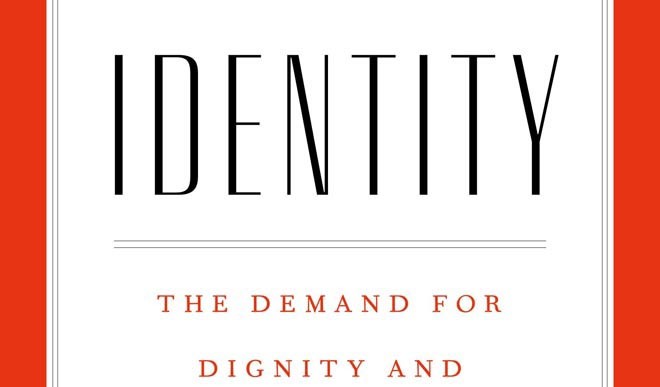
Fukuyama’s latest book examines modern identity politics: its origins, its effects, and what it means for affairs of the state

More than its preposterous thesis, what gave Francis Fukuyama’s The End of History and the Last Man a prominent stature in folklore was how the Western academia and literati clutched at it as the holy gospel proclaiming the triumph of liberal democracy. That The End of History bombed and didn’t quite pass the test of time, was as much on Fukuyama as it was on those who talked it up to outrageous proportions.
The renowned political scientist has been less sweeping in his writings since then. In his previous offering, Political Order and Political Decay: From the Industrial Revolution to the Present Day, Fukuyama underlined the political decay that the US is going through. He expands on that work in his latest book Identity: The Demand for Dignity and the Politics of Resentment.
Just as Fukuyama has become less reckless in his assertions, his critics have been giving him increasing leeway. This barely-two-hundred-page book is certainly not the bulkiest Fukuyama book nor the most complex. Yet it is an expansive one. Its simplicity and honesty are what make it unique.
If Identity: The Demand for Dignity and the Politics of Resentment is the first Fukuyama book that you read, it is advisable to acquaint yourself with the author himself and how his ideas have evolved over time.
Like The End of History, which was preceded by a Foreign Affairs essay, his latest book has developed out of another piece in the magazine, entitled ‘Against Identity Politics - The New Tribalism and the Crisis of Democracy’.
While the evolution of the ideas in Identity is for you to discover, Fukuyama’s strength in thought and writing originates in the one characteristic that has been at the heart of all his work: simplicity.
Unlike many modern scholars, Fukuyama does not take pleasure in throwing difficult word and knotty phrases in half-a-page-long sentences at his readers. He doesn’t want to stump you with his vocabulary - he’d rather you exercise your grey cells taking in and parsing the argument that he’s making.
He doesn’t want to one-up you. He wants you to understand - which is why his books don’t include lengthy monologues on the glory of Aristotle and the ingenuity of Montesquieu. Instead, he talks about the simplest of ideas: the soul, the psyche, the human need for recognition, the root causes of decay of modern institutions, and… identity. And how identity politics has shaped human history. Then there is Donald Trump.
Fukuyama insists that he wouldn’t have written the book had Donald Trump not come into power in America. It was with the rise of Trump that he stumbled upon a series of previously unexplored ideas: thoughts about why and how a successful man - a rich and powerful businessman who had had his share of glory and limelight and might have had the desire to become the president of the United States of America.
He theorises that Trump and others like him - Fukuyama mentions in the same breath as Vladimir Putin and Recep Tayyip Erdogan -- are populist leaders who believe that institutions are nothing but hurdles in their path to gain greater control of their country and people. They are egotistical fascists.
The more important question is: why do people vote for such egotistical fascists? Fukuyama’s answer: because modern democracies do not cater to "thymos" - "the part of the soul that craves recognition of dignity".
Thymos, isothymia, and megalothymia - a resumption from his earlier works, these three Platonic concepts are the pivots in a work that expands, on one side, far into the realms of modern democracy and its flaws, and on the other, into religion, identity, and nationality.
Thymos, as already explained, is that part of the human consciousness - "soul" somehow doesn’t seem appropriate to a modern political scientist - that desires respect and recognition from fellow humans; the part that fuels human dignity. Isothymia is defined by Fukuyama as "the demand to be respected on an equal basis with other people", and megalothymia as "the desire to be recognised as a superior".
Fukuyama has previously argued that liberal democracy is the only political setup that satisfies human isothymia. His latest work, however, insists that the liberal democratic system has, unknowingly, created a monster - a Frankenstein - that, consciously, rejects individualism in favour of collective identities - identities that both the Left and the Right have exploited, and distorted, to attain their interests.
It is the dark side of modern democracy that gives rise to megalothymic, self-serving autocrats like Donald Trump. Much like the days of yonder - except that instead of being imposed on us by fascist political setups, now, most dangerously, the people willfully elect such autocrats in order to impose their side of the argument, on their behalf, on the rest of the country, or even the world.
Is that not what democracy was all about, to begin with?
Identity The Demand for Dignity and the Politics of Resentment
Author: Francis Fukuyama
Publisher: Farrar Straus Giroux
Pages: 240 (Hardback)
Price: Rs1,951